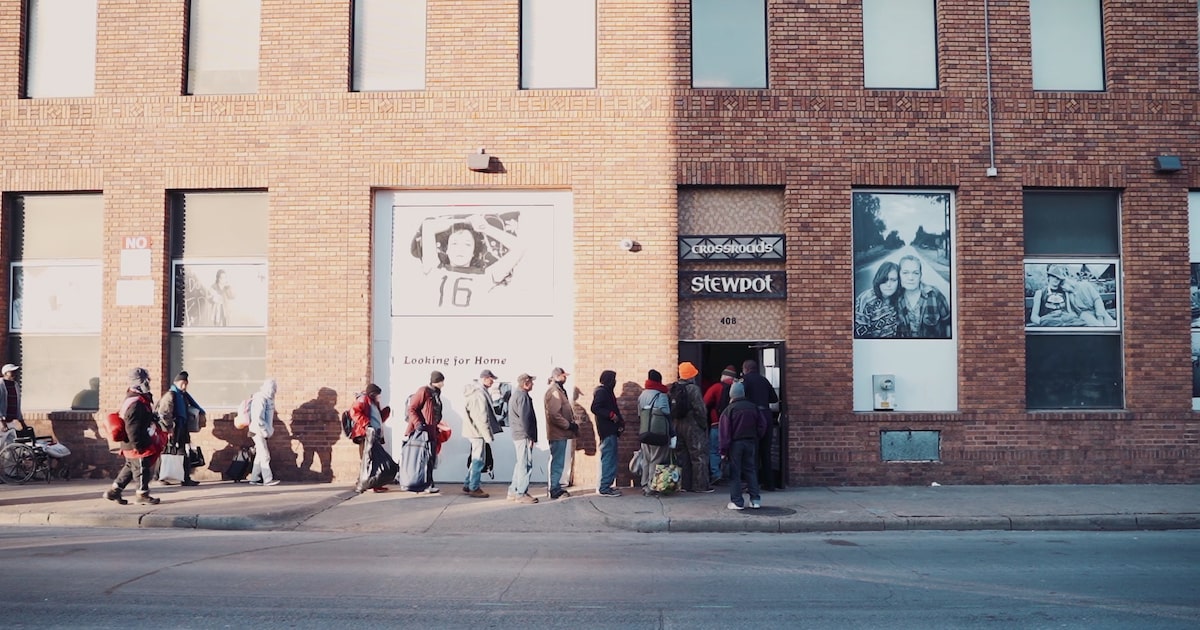
Let me tell you about some friends of mine.
Thomas watched his father murder his mother when he was 9 years old. Then Thomas and his siblings watched as their father burned the house down. Who among us would not have been traumatized? Thomas certainly was. He later got into teenage trouble, abused drugs, lived on the streets and cycled in and out of prison, where he now sits awaiting parole.
Meanwhile, Thomas recounts being raised by a religious grandmother, working in various jobs, being active in his children’s schools and participating in Alcoholics Anonymous and Narcotics Anonymous. Most astounding, he sought to forgive his father, even visiting him once in prison and again when his father’s long sentence ended. Thomas’ voice rose as he once told me, “It wasn’t like seeing him was easy.”
Now in his early 50s, Thomas has spent most of the last 40-odd years wrestling with his first few years. I’m not justifying his use of drugs and prison stints, nor does he. But they are not surprising. And he told me recently on a prison call that he’s tired of living that way.
There’s also Daniel, who’s as honest as Thomas about the impact of addiction. He had a steady job before drugs took over for 25 years and he ended up homeless and imprisoned. Daniel is frank: He messed up and emphasizes that no one can make that point to themselves better than an addict.
Opinion
Daniel now has finished a course of study at Dallas College. He’s working as a licensed addiction counselor in a rehabilitation facility in the city. He speaks about becoming part of the solution for addiction and its frequent companion: homelessness.
Then there’s Len and Tyler. Both are in Dallas College after careers driving trucks nationwide and then ending up homeless. Tyler, who grew up in a loving family in a prosperous Houston suburb, became homeless after suffering from a mental illness that took a long time to identify and treat with the right medicine. Len, who grew up in the same suburb with a caring family, lost his apartment in another city, came to Dallas and spent a stint living with his two dogs at The Bridge Homeless Recovery Center. He’s training to become a chef and, like Tyler, lives in a subsidized apartment.
I’m not using their real names for privacy reasons, but my colleagues and I at The Stewpot’s Writers’ Workshop have known each of these people for several years. They have been regular participants in our weekly Friday morning writers’ group and given me permission to share their stories.
Their journeys track the pattern of many people who have been homeless or who still are without a place of their own. They’ve stumbled, sometimes in ways that, like Thomas, probably none of us could have escaped. Jobs fell through, delivering a knockout to people living on the edge. Drugs have been a fierce opponent. Mental illness has been a constant affliction. Or they don’t earn enough money to afford rent and their bills.
They have ended up on the streets or in shelters like The Bridge; discovered services at places like The Stewpot; secured apartments with the help of federal housing vouchers; and discovered new opportunities through institutions like Dallas College. Their stories share common plot points: a fierce and awful decline, a slow and sometimes circuitous path out of hell, the experience of grace through helping hands, and a boost from institutions that open doors.
None of this happens simply or without reversals and ups-and-downs. Their lives are just like ours, filled with peaks and valleys, twists and turns.
We continue to have debates in our city and around the nation about our homeless neighbors. Some elected leaders in Dallas, for example, recently discussed moving The Bridge out of downtown.
I don’t see the wisdom in that given that the city went through a long process to set up The Bridge, which only opened in 2008. But we should have discussions about the best policies. As with our immigration debate, we need policies that balance order and compassion. The order part will require keeping streets safe from people who cause trouble. The compassion aspect will require a long-term commitment and dollars. That includes from the public purse as well as from nonprofits that provide housing and services.
The Stewpot is one organization that has provided assistance and services over the long term. A ministry of the First Presbyterian Church of Dallas, The Stewpot is celebrating its 50th anniversary this month. I’m proud that our writers’ workshop is part of that work.
Let us not think, though, that the path forward will come quickly and easily. If we really want to combat homelessness, we need to stick with strategies that have been proven to work, along with dollars to fund those initiatives. This is not a one-and-done deal.
Meanwhile, journeys like those of my friends continue, day by day. We should neither lionize nor disdain them. Let’s just treat them as human beings and embrace solutions that improve their lives.
